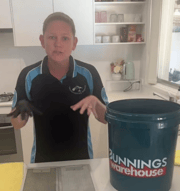
You're standing at the car rental counter, credit card in hand, when the clerk cheerfully announces there'll be a 'small processing fee' of 1.5 per cent. You ask to pay cash instead, only to be told they don't accept it.
Sound familiar? If you're one of the many Australians frustrated by these surprise charges and shrinking payment options, you're not alone—and there's both good news and important changes ahead.
The short answer: yes, it's perfectly legal (for now)
The surcharge must not be more than what it costs the business to process that payment type, but businesses have no legal obligation to accept cash or provide a fee-free payment method.
This might seem unfair, but it's the current reality of our rapidly changing payments landscape.
There is actually no law that states any business must accept cash as payment. Businesses are free to choose which kind of payment methods they accept, and they can opt to be completely cashless.
However, this is about to change dramatically for essential services, and understanding these upcoming reforms could save you money and frustration.
A lifeline for cash users: the 2026 game-changer
Here's where things get interesting for older Australians. Mandating cash for essential purchases means those who rely on cash will not be left behind. For many Australians, cash is more than a payment method; it's a lifeline.
From 1 January 2026, businesses selling essential goods and services will be required to accept cash payments. The Government will mandate that businesses must accept cash when selling essential items, with appropriate exemptions for small businesses.
What counts as 'essential'?
The Federal Government classes essential goods and services as those that are purchased to meet a basic need (food, shelter, healthcare), are required to maintain current living arrangements (car maintenance, school fees), or are a legal obligation (compulsory insurance, stamp duty).
This will include:
- Supermarkets and grocery stores
- Petrol stations
- Pharmacies
- Banks
- Potentially utilities and health services
Unfortunately for travellers, car hire doesn't fall within this scope, though final details of the mandate will be announced in 2025. Subject to the outcomes of consultation, the mandate would commence from 1 January 2026.
'For many older Australians, cash is a cornerstone of financial independence, not just a payment tool'
Why this matters for seniors
The statistics tell a compelling story. One in two Australians over 65 years and about 35 per cent of 50-65 year olds reporting that they use cash on a regular basis, while around 1.5 million Australians use cash to make more than 80 per cent of their in‑person payments.
There is a myriad of very valid reasons why people need to and prefer to pay with cash, including privacy and security concerns. For many older Australians, cash offers:
- Complete transaction privacy
- No risk of digital fraud or identity theft
- Budget control and spending awareness
- Independence from technology failures
- No account fees or minimum balances
Understanding card surcharges: know your rights
When businesses do charge card fees, strict rules apply. The surcharge must not be more than what it costs the business to process that payment type and can only include costs that are for accepting that payment type.
What are typical surcharge rates?
Costs typically range from 0.5 per cent to 1.5 per cent. However, the Reserve Bank of Australia's 2023-24 data shows that the card payment processing costs incurred by businesses are likely to be within the following ranges: Small business, processing less than $1 million in card transactions a year may have higher costs.
For context, according to data from the Reserve Bank of Australia, Amex card surcharges average around 1.33 per cent per transaction. The ATO has a an Amex card surcharge of 1.45 per cent.
Good news for debit card users
In October of 2024, Treasurer Jim Chalmers announced that a ban on debit card surcharges is likely to be implemented from January 2026, pending a final review of the plan from the Reserve Bank of Australia (RBA). This could save regular debit card users hundreds of dollars annually.
When businesses must include fees in displayed prices
Here's a crucial point many don't know: if there's no way to pay without a surcharge, the surcharge must be included in the displayed price. This means if a business only accepts cards (all with surcharges), they must display the total price including the lowest possible surcharge.
For example, say that a cafe charges $5 for a coffee, and only accepts payments by card, all of which have surcharges applied.
The ACCC says that, if the lowest possible surcharge to buy this coffee would be a 15 cent debut card surcharge, then the cafe would be required to display a price of $5.15 for that coffee.
How to challenge excessive surcharges
If you believe you've been overcharged, you have options:
Step 1: Talk to the business
Businesses need to ensure their customers know about any card payment surcharges upfront, and that they are only charging what it costs them to accept those card payments, according to ACCC Deputy Chair Mick Keogh.
Step 2: Official complaints
- NSW Fair Trading for NSW residents
- ACCC directly for excessive surcharge complaints: 1300 302 502
- Your bank if you believe the merchant's costs don't justify the surcharge
Step 3: Document everything
Keep receipts, take photos of displayed prices, and note whether surcharges were clearly disclosed before payment.
Smart strategies to avoid surcharges
- Ask about payment options before ordering
- Look for businesses that still accept cash
- Use debit cards instead of credit cards (lower fees, and potentially no fees from 2026)
- Consider the total cost, including surcharges, when comparing prices
- Shop around—businesses have different surcharge policies
What you can do right now
While waiting for the 2026 reforms, here are practical steps:
Immediate actions:
- Always ask about payment options before making purchases
- Challenge businesses that don't clearly display surcharge information
- Support businesses that accept cash or offer fee-free payment options
- Keep some cash on hand for emergencies and power outages
Advocacy opportunities:
The Treasury consultation on cash mandate details may be closed, but you can still make your voice heard. The consultation focuses on the needs of those who rely on cash, including people in regional areas and those unable to use digital payments.
Consider contacting your local federal MP about including services like car rental in the essential services definition.
The bigger picture: balancing progress with inclusion
Cash also provides an easily accessible backup to digital payments in times of natural disaster or digital outage. Recent events across Australia have shown how quickly digital payment systems can fail during floods, bushfires, or even simple power outages.
The upcoming changes represent a balance between embracing digital innovation and ensuring no Australian is left behind. The government is balancing the shift to digital payments while ensuring that cash remains an option for those who rely on it.
Did you know?
Did you know?
Up to 94 per cent of businesses continue to accept cash, despite the perception that everywhere is going cashless. Many businesses appreciate the lower processing costs and immediate payment that cash provides.
What This Means For You
While you might still face card surcharges at the car rental counter today, relief is on the horizon. The combination of essential service cash mandates, potential debit card surcharge bans, and stronger enforcement means fairer, more transparent pricing is coming.
Until then, know your rights, ask the right questions, and don't hesitate to speak up when businesses aren't playing fair with their payment policies.
What's your experience with card surcharges and cash acceptance? Have you successfully challenged an excessive fee, or found businesses that still welcome cash payments? Share your tips and stories in the comments below.
Original Article
https://www.theguardian.com/lifeand...siness-wont-accept-cash-instead-is-this-legal
Card surcharges | ACCC
Cited text: Certain rules apply when a business applies a surcharge to particular cards including: the surcharge must not be more than what it costs the business ...
Excerpt: The surcharge must not be more than what it costs the business to process that payment type
https://www.accc.gov.au/consumers/pricing/card-surcharges
A New Cash Mandate is Coming in 2026. Is Your Business Prepared? | BizCover
Cited text: However, there is actually no law that states any business must accept cash as payment. Businesses are free to choose which kind of payment methods th...
Excerpt: There is actually no law that states any business must accept cash as payment. Businesses are free to choose which kind of payment methods they accept, and they can opt to be completely cashless.
https://www.bizcover.com.au/new-cash-mandate-is-coming-is-your-business-prepared/
Next steps in ensuring the future of cash | Treasury Ministers
Cited text: For many Australians, cash is more than a payment method, it’s a lifeline. Mandating cash for essential purchases means those who rely on cash will no...
Excerpt: Mandating cash for essential purchases means those who rely on cash will not be left behind.
https://ministers.treasury.gov.au/m...edia-releases/next-steps-ensuring-future-cash
Next steps in ensuring the future of cash | Treasury Ministers
Cited text: The Government will mandate that businesses must accept cash when selling essential items, with appropriate exemptions for small businesses.
Excerpt: The Government will mandate that businesses must accept cash when selling essential items, with appropriate exemptions for small businesses.
https://ministers.treasury.gov.au/m...edia-releases/next-steps-ensuring-future-cash
A New Cash Mandate is Coming in 2026. Is Your Business Prepared? | BizCover
Cited text: The Federal Government classes essential goods and services as those that are purchased to meet a basic need (food, shelter, healthcare), are required...
Excerpt: The Federal Government classes essential goods and services as those that are purchased to meet a basic need (food, shelter, healthcare), are required to maintain current living arrangements (car maintenance, school fees), or are a legal…
https://www.bizcover.com.au/new-cash-mandate-is-coming-is-your-business-prepared/
A New Cash Mandate is Coming in 2026. Is Your Business Prepared? | BizCover
Cited text: The Treasury department has said that “Final details of the mandate will be announced in 2025. Subject to the outcomes of consultation, the mandate wo...
Excerpt: final details of the mandate will be announced in 2025. Subject to the outcomes of consultation, the mandate would commence from 1 January 2026.
https://www.bizcover.com.au/new-cash-mandate-is-coming-is-your-business-prepared/
Mandating cash for essential goods and services long overdue, crucial reform: COTA Australia—COTA Australia
Cited text: Chief Executive Officer of COTA Australia—the leading advocacy organisation for older people—Patricia Sparrow said that with one in two Australian...
Excerpt: One in two Australians over 65 years and about 35 per cent of 50-65 year olds reporting that they use cash on a regular basis
https://cota.org.au/news/mandating-cash-for-essential-goods-and-services-reform/
Next steps in ensuring the future of cash | Treasury Ministers
Cited text: Around 1.5 million Australians use cash to make more than 80 per cent of their in‑person payments and up to 94 per cent of businesses continue to acce...
Excerpt: around 1.5 million Australians use cash to make more than 80 per cent of their in‑person payments
https://ministers.treasury.gov.au/m...edia-releases/next-steps-ensuring-future-cash
Mandating cash for essential goods and services long overdue, crucial reform: COTA Australia—COTA Australia
Cited text: “There is a myriad of very valid reasons why people need to and prefer to pay with cash, including privacy and security concerns.
Excerpt: There is a myriad of very valid reasons why people need to and prefer to pay with cash, including privacy and security concerns.
https://cota.org.au/news/mandating-cash-for-essential-goods-and-services-reform/
Credit card surcharges in Australia | Finder
Cited text: Costs typically range from 0.5 per cent to 1.5 per cent.
Excerpt: Costs typically range from 0.5 per cent to 1.5 per cent.
https://www.finder.com.au/credit-cards/credit-card-surcharges
Card surcharges | ACCC
Cited text: The Reserve Bank of Australia’s 2023-24 data shows that the card payment processing costs incurred by businesses are likely to be within the following...
Excerpt: the Reserve Bank of Australia's 2023-24 data shows that the card payment processing costs incurred by businesses are likely to be within the following ranges: Small business, processing less than $1 million in card transactions a year
https://www.accc.gov.au/consumers/pricing/card-surcharges
Credit card surcharges in Australia | Finder
Cited text: According to data from the Reserve Bank of Australia, Amex card surcharges average around 1.33 per cent per transaction. The ATO has a an Amex card surcharge ...
Excerpt: according to data from the Reserve Bank of Australia, Amex card surcharges average around 1.33 per cent per transaction.
https://www.finder.com.au/credit-cards/credit-card-surcharges
Credit Card Surcharges in Australia in 2025 | Canstar
Cited text: In October of 2024, Treasurer Jim Chalmers announced that a ban on debit card surcharges is likely to be implemented from January 2026, pending a fina...
Excerpt: In October of 2024, Treasurer Jim Chalmers announced that a ban on debit card surcharges is likely to be implemented from January 2026, pending a final review of the plan from the Reserve Bank of Australia (RBA).
https://www.canstar.com.au/credit-cards/credit-card-surcharges/
Card surcharges | ACCC
Cited text: If there's no way to pay without a surcharge, the surcharge must be included in the displayed price.
Excerpt: if there's no way to pay without a surcharge, the surcharge must be included in the displayed price.
https://www.accc.gov.au/consumers/pricing/card-surcharges
Credit Card Surcharges in Australia in 2025 | Canstar
Cited text: The ACCC says that, if the lowest possible surcharge to buy this coffee would be a 15 cent debut card surcharge, then the cafe would be required to di...
Excerpt: For example, say that a cafe charges $5 for a coffee, and only accepts payments by card, all of which have surcharges applied.
https://www.canstar.com.au/credit-cards/credit-card-surcharges/
Businesses reminded to review their card surcharges and pricing information | ACCC
Cited text: “Businesses need to ensure their customers know about any card payment surcharges upfront, and that they are only charging what it costs them to accep...
Excerpt: Businesses need to ensure their customers know about any card payment surcharges upfront, and that they are only charging what it costs them to accept those card payments
https://www.accc.gov.au/media-relea...their-card-surcharges-and-pricing-information
Next steps in ensuring the future of cash | Treasury Ministers
Cited text: The consultation focuses on the needs of those who rely on cash, including people in regional areas and those unable to use digital payments, as well ...
Excerpt: The consultation focuses on the needs of those who rely on cash, including people in regional areas and those unable to use digital payments
https://ministers.treasury.gov.au/m...edia-releases/next-steps-ensuring-future-cash
Next steps in ensuring the future of cash | Treasury Ministers
Cited text: Cash also provides an easily accessible back‑up to digital payments in times of natural disaster or digital outage.
Excerpt: Cash also provides an easily accessible back‑up to digital payments in times of natural disaster or digital outage.
https://ministers.treasury.gov.au/m...edia-releases/next-steps-ensuring-future-cash
The Government’s Cash Mandate: What It Means for Essential Services
Cited text: The government is balancing the shift to digital payments while ensuring that cash remains an option for those who rely on it.
Excerpt: The government is balancing the shift to digital payments while ensuring that cash remains an option for those who rely on it.
https://nexxtap.com/blog/the-governments-cash-mandate-what-it-means-for-essential-services







